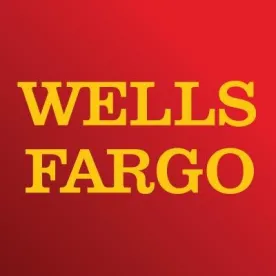The U.S. Department of Labor (DOL) has ordered Wells Fargo to reinstate and pay approximately $577,500 damages to a former branch manager in Pomona who was terminated for complaining about salespersons creating unauthorized accounts to meet unrealistic sales targets. This is the second Occupational Safety and Health Administration (OSHA) order in 2017 ruling for a Wells Fargo whistleblower. Approximately three months ago, OSHA ordered Wells Fargo to reinstate another whistleblower and pay approximately $5.4M in damages for violating the Sarbanes-Oxley (SOX) whistleblower protection law.
Wells Fargo Whistleblower’s Protected Conduct
OSHA found that Wells Fargo fired the whistleblower in September 2011 because she opposed the bank’s private bankers opening customer accounts and enrolling customers in bank products without their knowledge, consent or appropriate disclosures. These disclosures relate to the unlawful sales practices that resulted in a $185 million fine imposed by the Consumer Financial Protection Bureau (CFPB) and other bank regulators. The CFPB found that Wells Fargo opened approximately 2 million deposit and credit-card accounts without customers’ approval to satisfy sales goals.
Relief Ordered
OSHA has ordered Wells Fargo to reinstate the whistleblower and pay $577,500, which represents lost wages and benefits (also known as back pay, compensatory damages and attorneys’ fees). In addition, OSHA ordered Wells Fargo to post a notice informing employees of their whistleblower protections under the SOX and Consumer Financial Protection acts. As SOX authorizes uncapped special damages (damages for reputational harm and emotional distress), the whistleblower could potentially recover damages at trial in excess of the amount that OSHA ordered Wells Fargo to pay. Recently SOX whistleblowers have obtained substantial recoveries at trial, including the following three jury verdicts:
-
Jury Awards Former Bio-Rad Counsel $11M in Sarbanes-Oxley Whistleblower Case
-
Jury Awards Six Million Dollars to Whistleblower in Sarbanes-Oxley Case
Reasonable Cause Standard in OSHA Whistleblower Investigations
OSHA enforces more than twenty whistleblower protection laws, investigating reprisal complaints and issuing merit findings where there is reasonable cause to believe that retaliation has occurred. A 2015 OSHA memo clarifies that OSHA employs the following “reasonable cause” standard in investigations of whistleblower retaliation claims:
-
“The threshold OSHA must meet to find reasonable cause that a complaint has merit requires evidence in support of each element of a violation and consideration of the evidence provided by both sides during the investigation, but does not generally require as much evidence as would be required at trial. Thus, after evaluating all of the evidence provided by the employer and the complainant, OSHA must believe that a reasonable judge could rule in favor of the complainant.”
-
“OSHA’s investigation must reach an objective conclusion – after consideration of the relevant law and facts – that a reasonable judge could believe a violation occurred. The evidence does not need to establish conclusively that a violation did occur.”
-
“OSHA’s responsibility to determine whether there is reasonable cause to believe a violation occurred is greater than the complainant’s initial burden to demonstrate a prima facie allegation that is enough to trigger the investigation.”
-
“Although OSHA will need to make some credibility determinations to evaluate whether a reasonable judge could find in the complainant’s favor, OSHA does not necessarily need to resolve all possible conflicts in the evidence or make conclusive credibility determinations to find reasonable cause to believe that a violation occurred.”
If OSHA orders reinstatement of a SOX whistleblower, the order is effective immediately and is not stayed pending the resolution of any objections or appeal.
OSHA Enforcement of Corporate Whistleblower Protection Laws
There has been some speculation that the Trump Administration might curtail enforcement of whistleblower protection laws. But the recent orders in SOX claims brought by Wells Fargo whistleblowers suggests that DOL leadership is committed to vigorously enforcing whistleblower protections laws. In a press release, Barbara Goto, OSHA regional administrator in San Francisco, stated that “[n]o banking industry employee should fear retaliation for raising concerns about fraud and practices that violate consumer financial protections” and that the DOL “will fully and fairly enforce the whistleblower protection laws under its jurisdiction.” This is welcome news and is consistent with President Trump’s promise to drain the swamp. As Tom Devine, Legal Director of the Government Accountability Project, and I argued in a recent article, Draining the Swamp Requires Robust Whistleblower Protections and Incentives



 />i
/>i

